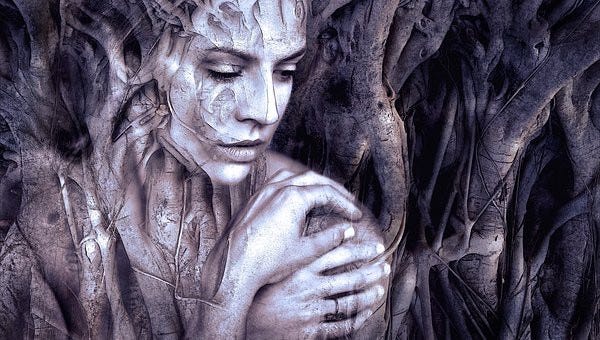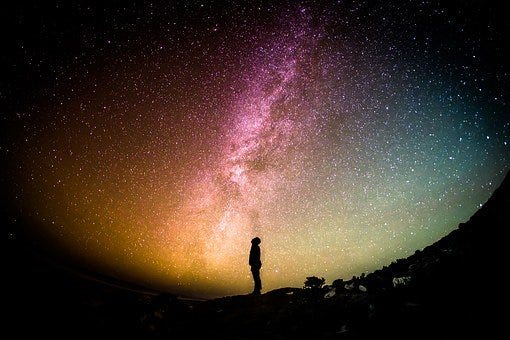

This article is the latest in a series on the theme of whether we can find a new mythology, a common visionary story, to unite humanity in an attempt to solve the world’s problems. (For a guide to the whole series, see under Mythology near the bottom of the Blog Index page.)
In the two most recent I described the spirituality of the Perennial Philosophy, which had its origins in Eastern religions, and Western spiritual traditions. Now I’m going to turn my attention to Christianity.
Where does Christianity stand in relation to the new mythology? It is, after all, the dominant religion in Western society, and one of the most significant in the world. It is interesting to note, therefore, that in The Tao of Physics Fritjof Capra, when comparing the findings of modern physics to ancient religions, found no need to include Christianity, whereas Hinduism, Buddhism, Taoism, and Zen all had chapters. Christianity, believing itself to be superior, the true religion, tends to reject and denounce the Eastern religions. The findings of quantum physics suggest that this rejection is unwarranted, and that these religions, on the contrary, have much to offer as we try to understand the nature of the universe.
If Christianity is to find a place in the new mythology, therefore, it could not be Christianity as we know it. It would have to be a completely revised version — we are in need of a new Reformation. This is a massive topic, and cannot be gone into more detail here; it will require a whole new series¹.
One person who has advocated such a revolution is Bishop John Shelby Spong, whose most relevant books on that theme are Why Christianity Must Change or Die², and A New Christianity for a New World ³. In them he presents his own vision, and there is much that I would agree with.
One obvious general point is that Christianity would have to stop considering itself superior to other religions, the ‘true’ religion, and accept rather that it is one branch of the tree of the Perennial Philosophy, the idea that at their core all religions are saying the same thing. We have much to learn from other religions: Hinduism, Buddhism, Taoism, Islam (specifically its mystical tradition, Sufism), the Native Americans, and ancient mythologies.
A second general point is that Christianity would have to be in agreement with the best of modern science, what we might call new paradigm science — not the Enlightenment science of Steven Pinker, and those like him.
I believe that two specific points which Christianity would have to accept are reincarnation — I have addressed this briefly in an earlier article — and the reality of the Divine Feminine, which I’ll discuss in my next article (click here).
Another way of saying all this is that we would need to have a deeper, more esoteric understanding of what Christianity is really about, not what has been offered to us by the Churches down the years. As George Trevelyan said: “The ageless wisdom (i.e. the Perennial Philosophy), lighting up in esoteric Christianity, runs like a golden thread through Western history, appearing in a guise appropriate for each successive age. We are now experiencing a new manifestation of it, uniquely suited to our own epoch”⁴.
He is probably talking about this new mythology that I am seeking.

====================================================================================================
Footnotes:
1. I’ve made some preliminary observations on this theme in an earlier article, click here.
2. HarperSanFrancisco, 1998
3. HarperSanFrancisco, 2001
4. A Vision of the Aquarian Age: The Emerging Spiritual Worldview, 1977, later edition Gateway Books, 1994, p26–27